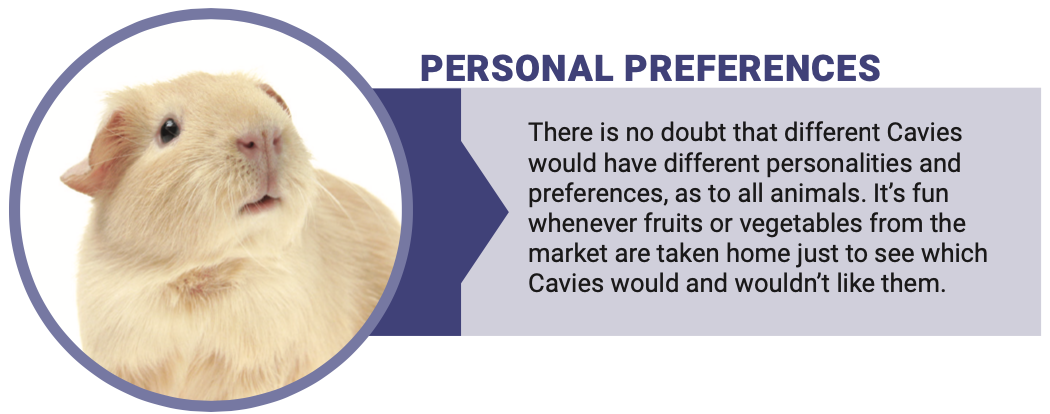Long ago, when humanity had just taken to the seas to voyage the world in the name of discovery and conquest, there was a dreaded disease that nearly took the lives of half of a ship’s crew. This maritime nightmare came to be known as scurvy.
In medical terms, scurvy is called hypovitaminosis C, with hypo meaning below and vitaminosis meaning a state of a certain vitamin’s level in the body. The term is then defined as a deficiency of vitamin C in the system.
WHY DOES IT AFFECT CAVIES?
You would probably be surprised to hear that this disease affects not only humans, but also Cavies and Guinea Pigs.
Enzymes are substances that help speed up biochemical reactions
in living organisms, according to a 2015 article by Peter K. Robinsons for Essays in Biochemistry. Sadly, our adorable Cavy companions lack the enzyme 1-gluconolactone oxidase, responsible for the conversion of L-gluconolactone to L-ascorbate in the synthesis of vitamin C. This makes them very prone to developing scurvy, as mentioned by the Curators of the University of Missouri.
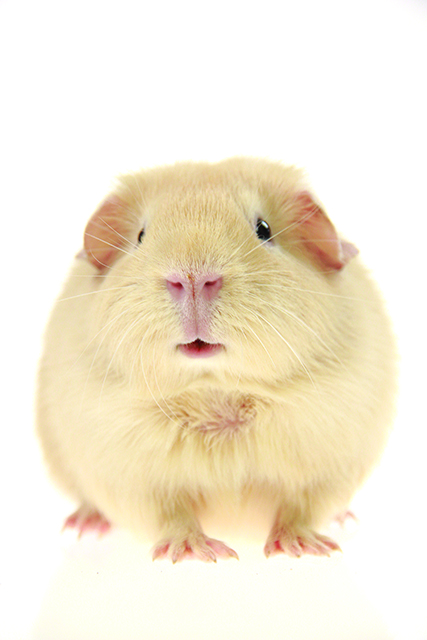
WHAT SHOULD ONE WATCH OUT FOR?
Left unchecked or untreated, scurvy in Cavies can be a painful ordeal.
Signs that our adorable little companion might be afflicted with scurvy include appetite problems, swollen or painful joints and ribs, reluctance to move, poor bone and teeth development, and spontaneous gum bleeding, according to a 2016 book by Margi Sirois titled Laboratory Animal and Exotic Pet Medicine Principles and Procedures.
Additionally, dry hair coat, delayed wound healing, teeth grinding, frequent vocalization, chronic illnesses, stillbirth, and mortality within two to three weeks can be manifestations.
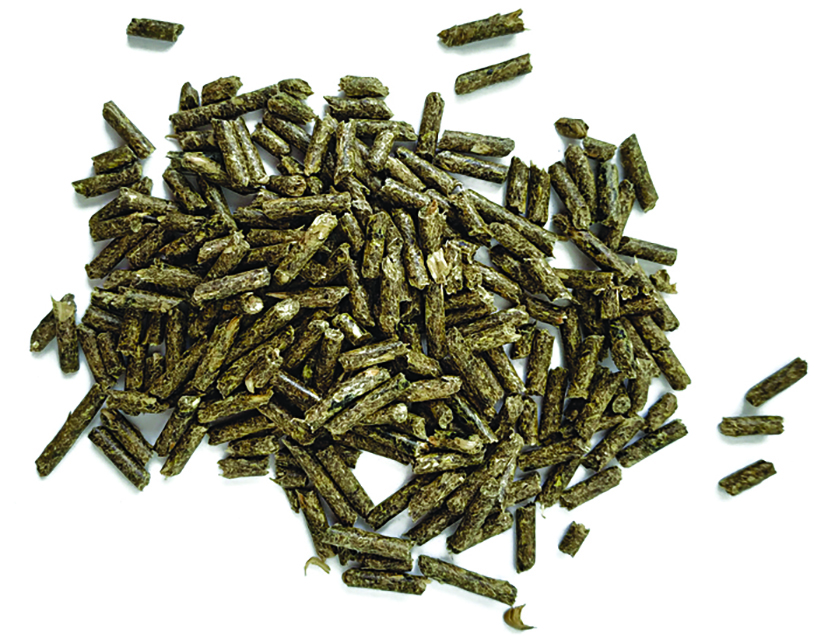
WHAT CAN WE DO?
The best strategy to avoid scurvy in Cavies is to provide them with a well-balanced diet with the right amounts of vitamin C.
Vitamin C is present in commercial Cavy pellets; however, commercially- produced Cavy pellets lose their vitamin C potency within 90 days of milling. Thus, vitamin C should be supplemented directly for Cavies.
Supplementation can be done by directly adding vitamin C supplements to pellets or water. You can also make it fun for Cavies by giving them fresh and thoroughly washed vegetables
THE ROLE OF FEED STORAGE
Vitamin C content in commercially- produced pellets can be easily degraded due to excessive moisture, light, and heat exposure. Don’t forget to inspect the packaging of the product before you buy them!
Make sure the packaging is clean and free from any damage or insects. Properly store your pellets, preferably in an airtight container away from direct heat or sunlight.
WHAT FOOD IS HIGH IN VITAMIN C?
Tomatoes (excluding the leaves), bell peppers, broccoli, spinach, asparagus, and kale are some examples of vitamin C-rich fruits and vegetables ideal for Cavies. Leafy greens are a good source of vitamin C, but they don’t have as much glucose as bell pepper. This isn’t to imply that high- sugar meals can’t be provided to Cavies; they just need to be given in moderation to prevent digestive problems.
Another factor to consider is the amount of calcium present in specific fruits and vegetables, as a high-calcium diet can lead to bladder or kidney stones.
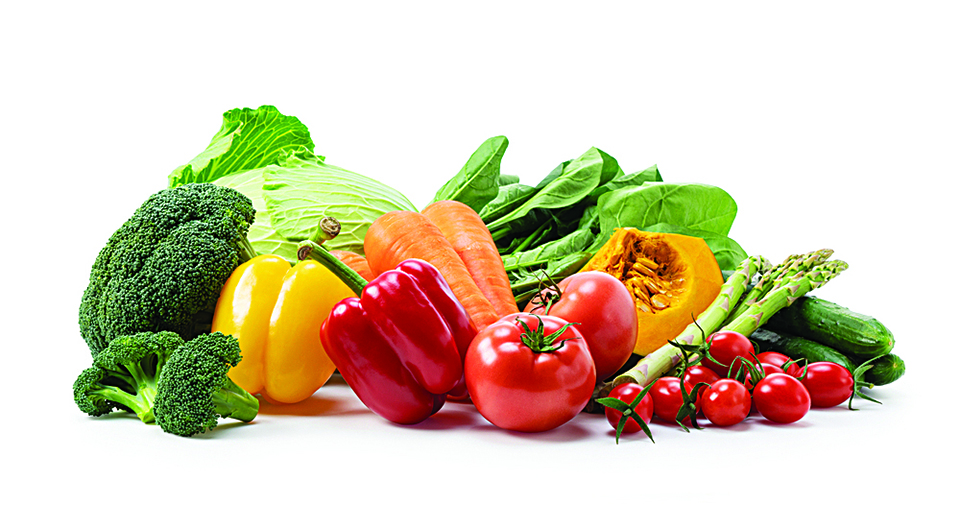
DAILY REQUIREMENT
According to Biology, Husbandry, and Clinical Techniques of Guinea Pigs and Chinchillas by Katherine Quesenberry, Thomas M Donnelly, and Elizabewth V. Hillyer, an adult Cavy would require 10 mg/kg/day of vitamin C while pregnant Cavies would require up to 30 mg/kg/day.
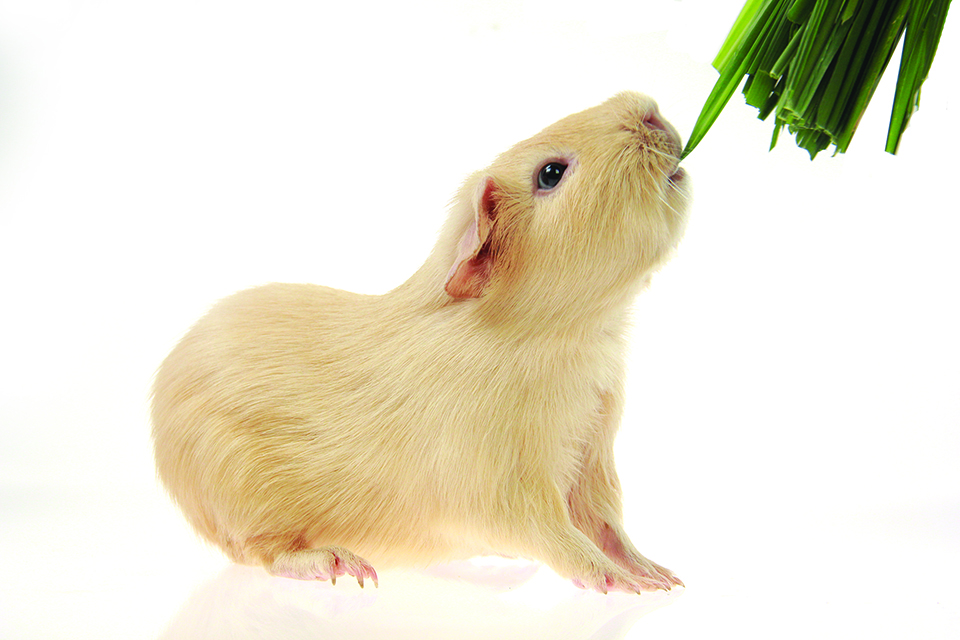
“HAY” THERE!
Although hay is an integral part of a Cavy’s diet, it contains a very small amount of vitamin C.
TOO MUCH, TOO BAD
Take note that while a deficiency of vitamin C occurs, there is always a possibility for vitamin C levels to be in overabundance as well. When this happens, it is called hypervitaminosis C, a condition that can also lead to health problems.
Always consult with your veterinarian to ensure the health and overall wellbeing of your companion Cavies!
NO NEED TO FRET
Scurvy might be a scary thing, especially because it causes pain and sometimes death if unchecked, but it is both preventable and treatable.
Scurvy can be prevented by vitamin C supplementation when done right, and it can be treated when it is diagnosed right away by your trusted veterinarian!
